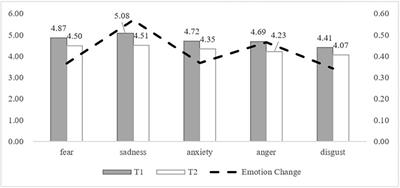EDITORIAL
Published on 17 Mar 2022
Editorial: Achieving Well-Being—Bridging Psychological Distance in Our Environment
doi 10.3389/fpsyg.2022.813341
- 1,041 views
- 1 citation
27k
Total downloads
132k
Total views and downloads
EDITORIAL
Published on 17 Mar 2022
ORIGINAL RESEARCH
Published on 05 Nov 2021

BRIEF RESEARCH REPORT
Published on 03 Sep 2021

ORIGINAL RESEARCH
Published on 31 Aug 2021

ORIGINAL RESEARCH
Published on 01 Apr 2021

ORIGINAL RESEARCH
Published on 22 Feb 2021

ORIGINAL RESEARCH
Published on 19 Jan 2021

ORIGINAL RESEARCH
Published on 13 Jan 2021

HYPOTHESIS AND THEORY
Published on 24 Nov 2020

SYSTEMATIC REVIEW
Published on 19 Nov 2020

ORIGINAL RESEARCH
Published on 28 Oct 2020

ORIGINAL RESEARCH
Published on 09 Oct 2020
